Lithuanian student launches 'gender stereotype' project showing young men crying in military uniform after being called to serve in the army
Student wants to dispel misconceptions surround young men who are meant to be seen as 'rational, emotionless, and aggressive'
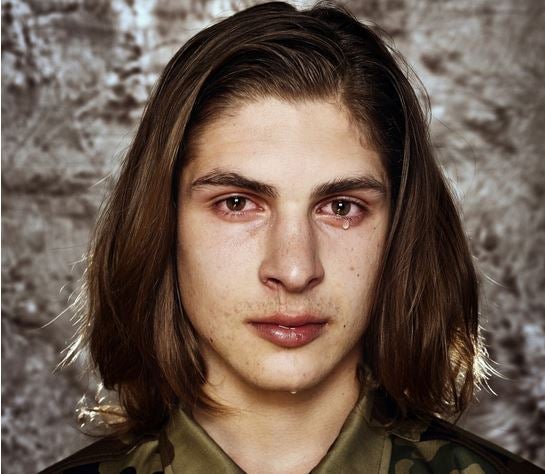
Your support helps us to tell the story
From reproductive rights to climate change to Big Tech, The Independent is on the ground when the story is developing. Whether it's investigating the financials of Elon Musk's pro-Trump PAC or producing our latest documentary, 'The A Word', which shines a light on the American women fighting for reproductive rights, we know how important it is to parse out the facts from the messaging.
At such a critical moment in US history, we need reporters on the ground. Your donation allows us to keep sending journalists to speak to both sides of the story.
The Independent is trusted by Americans across the entire political spectrum. And unlike many other quality news outlets, we choose not to lock Americans out of our reporting and analysis with paywalls. We believe quality journalism should be available to everyone, paid for by those who can afford it.
Your support makes all the difference.On the morning of 11 May, almost 37,000 young men – aged between 19 and 26 – woke to find their surnames on Lithuania’s compulsory military service list.
Lithuania, which had originally abolished conscription in 2008, said it was now necessary because of the changing security situation in the Eastern Europe.
The country’s defence ministry added that it wanted to improve manning in military units and build-up the sufficient military reserve.
However, one photographer and political science student, Neringa Rekasiute, took it into her own hands to show how dangerous gender expectations are after the young men took to social media to express their thoughts about what many called a sudden and random ‘lottery’ – to which members of the public retaliated by calling them ‘unmanly’, ‘cowardly’, and ‘disgraceful’.
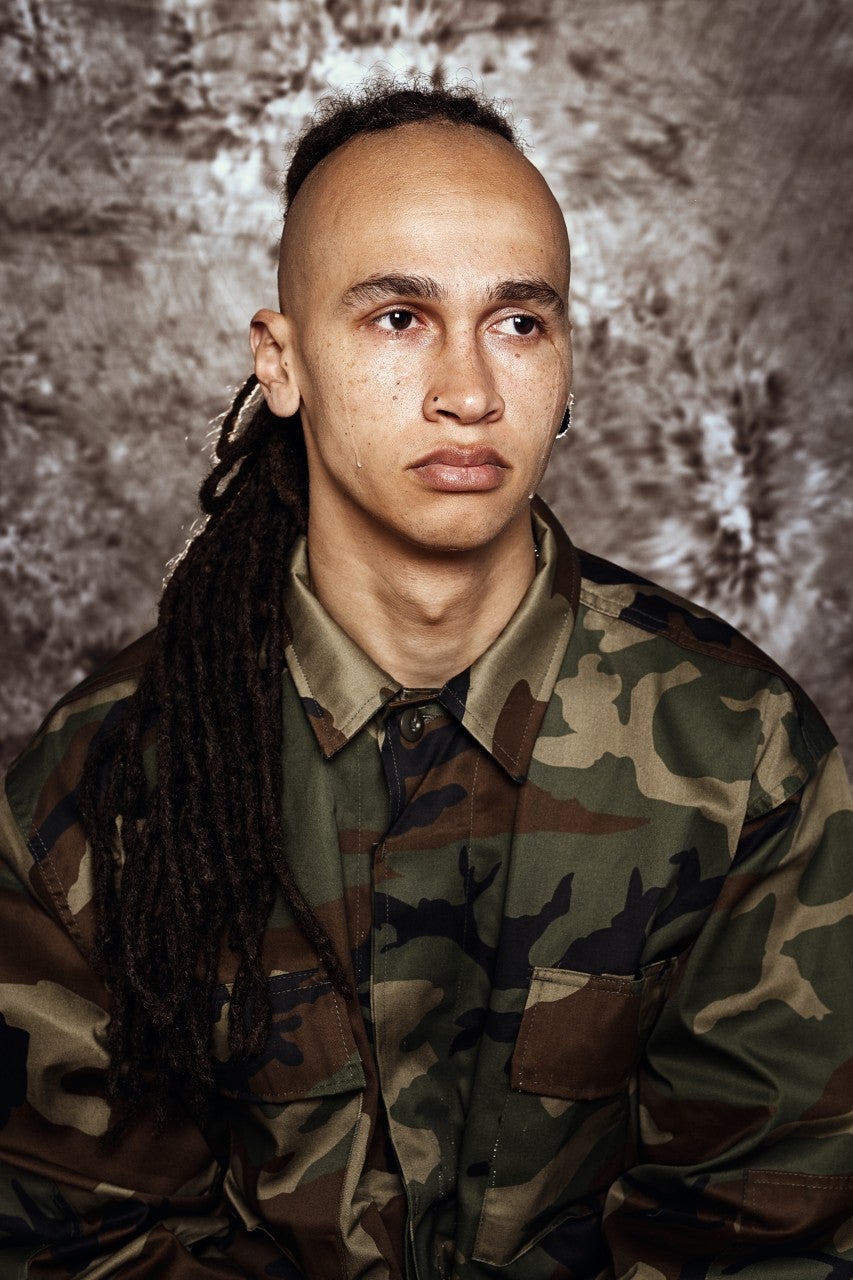
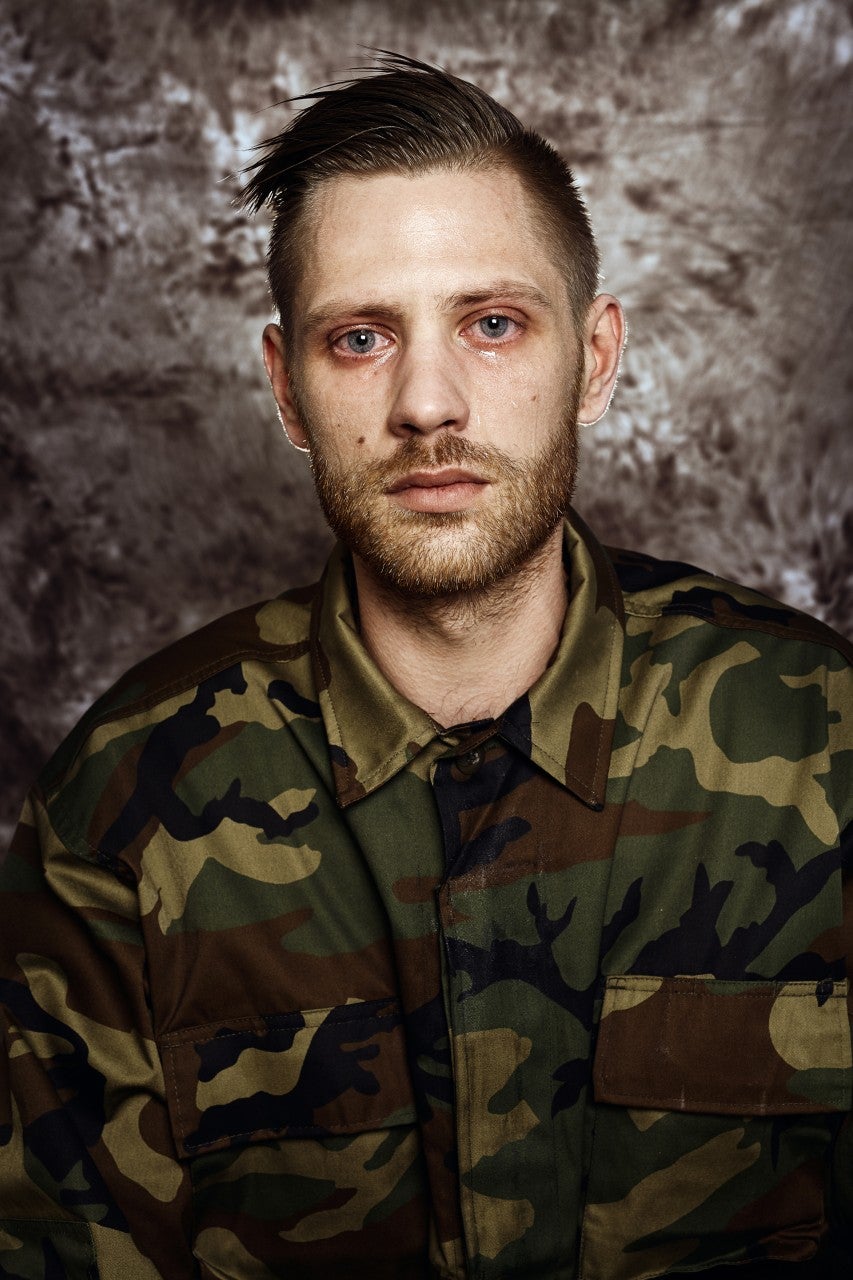
Along with Lithuanian actress and TV host, Beata Tiskevic-Hasanova, Neringa gathered 14 random men – who are not real conscripts – aged between 17 and 28, and took portraits of them crying in military uniforms.
The two young women want people to break down the barriers and misconceptions surround young men who are meant to be seen as rational, emotionless, and aggressive, Neringa says on her website.
“It is very important that we, as a society, teach men to express their emotions and not force a stereotypical archaic role onto them,” she adds.
Accompanied by the models’ quotes, the pair launched the project called ‘They Won a Lottery’.
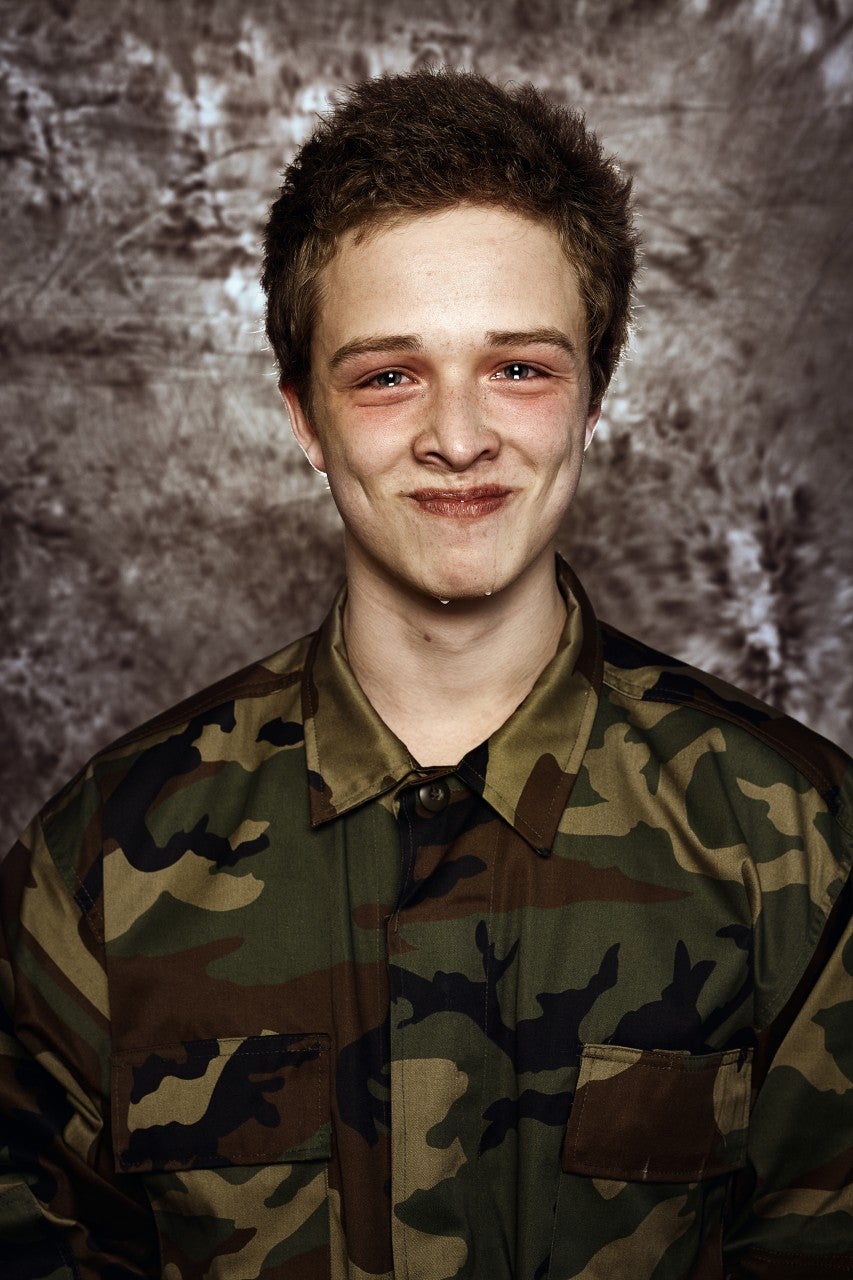
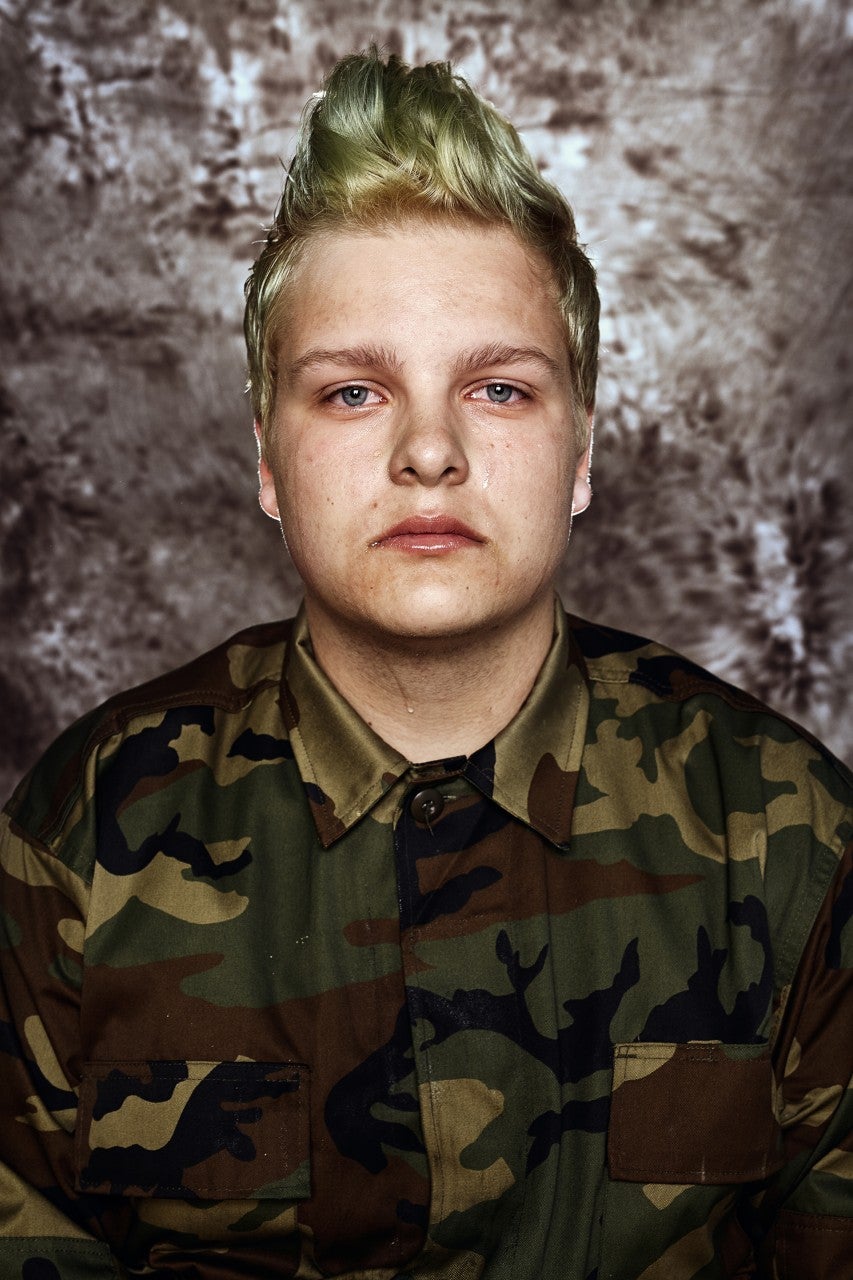
Join our commenting forum
Join thought-provoking conversations, follow other Independent readers and see their replies
Comments